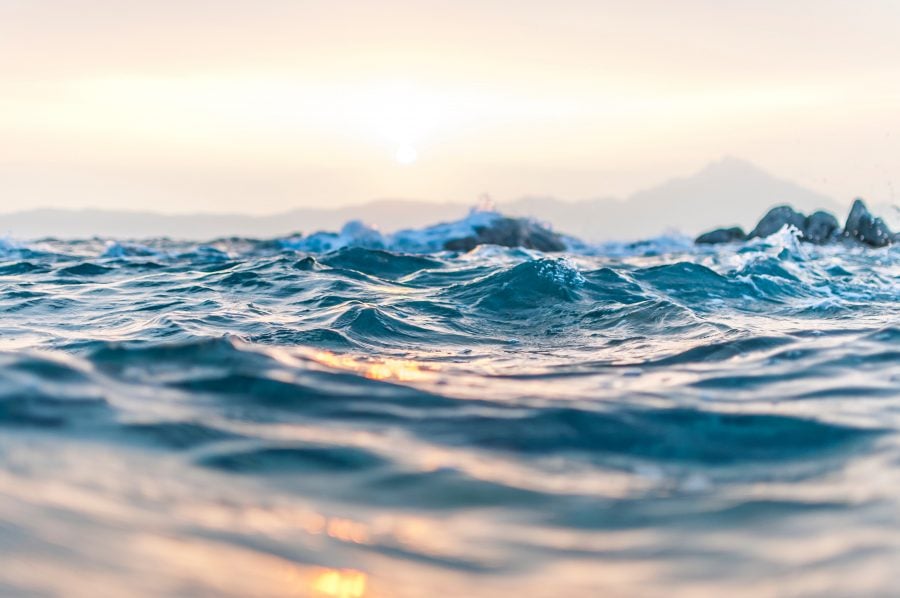
Twenty-one classes totaling nearly 400 students in grades 4-8 attended one or more of the nine different presentations offered over the 3-day Water Festival, March 23-25. First launched in 2012 when the Great Lakes Research Center opened, in-person attendance has ranged as high as 1000 students from the 4-county area.
“Like so many other programs that had been face-to-face, we had to pivot and figure out how to create an online water festival,” explains co-organizer, Joan Chadde, director of the Michigan Tech Center for Science & Environmental Outreach and a partner in the Lake Superior Stewardship Initiative that co-sponsored the event.
Teachers were able to select up to six 45-minute virtual sessions to attend at 10 am and 2 pm each day.
The nine sessions, presenters, and a short description of each are listed below.
“Become a Sooper Yooper” with Mark Newman. author of the “Sooper Yooper: Environmental Defender of Lake Superior”. Students investigated how to address the challenge of ridding the Great Lakes of invasive species (and other environmental pollution battles).
“Great Lakes Freshwater Feasts!” with Dr. Lauren Jescovich, Extension Educator in Fisheries & Aquaculture from Michigan Sea Grant. Students learned why eating local fish is healthy, how to cook fish, and how to get fish from recreational fishing, aquaculture, or commercial fisheries.
“US Coast Guard to the Rescue!” with Alan Young from Coast Guard Station Portage near Dollar Bay shared multiple short videos, including a tour of the station, some of their boats, and some search & rescue operations.
“Living on the Edge: Saving Shorelines” with Jill Fisher & Nick Potter from the Keweenaw Land Trust explored the Keweenaw Water Trail and the importance of shorelines and shoreline habitats as corridors for people and animals.
“How Do Our Food Choices Affect the Earth?” with students from the MTU Sustainability House explores all of the ingredients — the grass, water, petroleum, fertilizers, and more — that go into producing and transporting our food and how this affects our planet.
“Striving for Zero-Waste” with students from the MTU Sustainability House explores how we can reduce the 4 pounds/day (1606 pounds per year) of waste that the average American discards each year by making choices about what we eat, packaging, and more, through interactive games.
“Monitoring Water Quality with Dragonflies!” with Park Rangers Zach Gostlin and Hailey Burley from Pictured Rocks National Lakeshore explores how mercury, a toxic pollutant that can harm humans and wildlife, enters rivers and lakes, then moves through the food web bioaccumulating up the food chain. Students investigate how we know it’s there and what can we do to stop it.
“Forests’ Important to Watersheds: Trout Are Made of Trees” with Shanelle Saunders, Conservation Education Coordinator, Ottawa National Forest, explores how forests filter runoff and help to clean water that people and animals need.
“We Are Where We Live!” with Dr. Erika Vye, a Geosciences Research Scientist, at MTU’s Great Lakes Research Center, will guide students as they explore the local geology, Lake Superior, and Indigenous histories to discover what makes the place where they live unique.
While attendance may have been lower than in some past years, enthusiasm still ran high!
“They really enjoyed learning about the invasive species!” observed Josh Normand, Grade 4-5 teacher at Chassell Elementary. “A lot of my students informed me that they are going to be on the lookout for them this summer when they are fishing.”
“They liked all of the presentations. They could not agree on one they liked best, but had many favorites,” commented Andrea Lahnanen, Grades 6-8 teacher at Sacred Heart School in L’Anse. “They all told me that they really enjoyed it and would love to do it again!”
“A wide variety of science and engineering topics related to land and water stewardship were presented” adds Emily Gochis, Western UP MiSTEM director, at the Copper Country Intermediate School District.
The 2021 Water Festival is made possible with funding from the Michigan Space Grant Consortium, the Western UP MiSTEM Network, the Great Lakes Research Center, and the Wege Foundation.
The Festival is coordinated by the Lake Superior Stewardship Initiative and MTU Center for Science & Environmental Outreach, with support from the MTU Department of Civil & Environmental Engineering and Copper Country Intermediate School District.
The Water Festival would not be possible without the participation of presenters from the Keweenaw Land Trust, Pictured Rocks National Lakeshore, Ottawa National Forest, Michigan State University Extension, students at Michigan Tech’s Sustainability House, U.S. Coast Guard, Great Lakes Research Center.
For more information, visit the Lake Superior Stewardship Initiative (LSSI) webpage: http://lakesuperiorstewardship.org/water_festival.php or contact: Joan Chadde (jchadde@mtu.edu).
“The Water Festival provides an opportunity for students to learn about and celebrate our most precious natural resource – the Great Lakes!” explains Chadde.